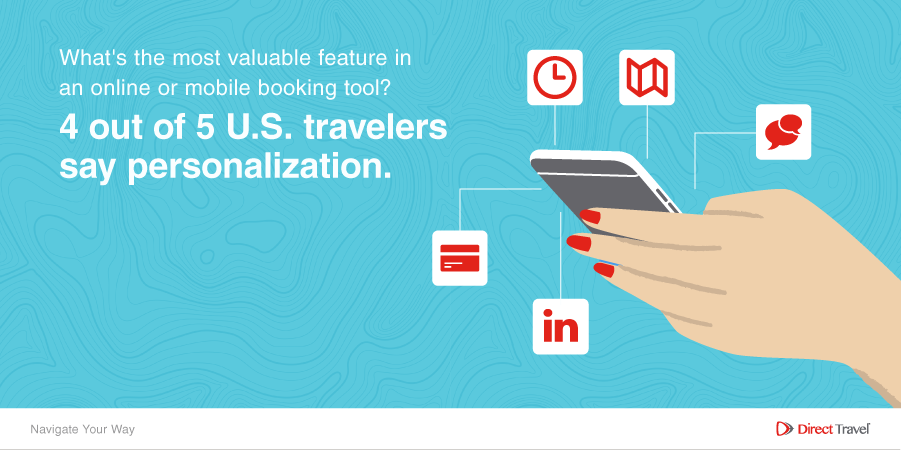No one likes being managed under a microscope. Effective travel policy management approaches compliance with a thorough understanding of how the policy impacts traveler experience in the moment. By identifying traveler needs early, travel managers can leverage technology to create travel programs that encourage compliance without sacrificing traveler safety, comfort or health.
Balancing Compliance with Traveler Satisfaction
Properly managed, travel compliance and traveler satisfaction form a balance. On the one side, policy compliance keeps the business operational. On the other side, happy travelers are more willing to comply with their companies’ travel policies. Achieving this balance, however, is a challenge. Travel managers must determine how to keep traveler satisfaction high without going over budget.
Some employees may be noncompliant without even knowing it. So, how can travel managers rein in spending and improve traveler experience without micromanaging every single traveling employee? A travel management company can help by standardizing policies, processes and workflows, as well as providing intuitive technology solutions designed to control costs and make travel a little easier for employees.
Driving Compliance with Tech-Powered Travel Management
Technology is at the center of every travel interaction, from booking tickets to renting vehicles. Let’s look at four core components of a travel policy to determine how travel managers can use technology-driven solutions to facilitate policy compliance:
Booking Tool Adoption

The key to increasing online booking tool adoption is customization, and travelers agree: 4 out 5 U.S. travelers say that personalization is the most valuable feature in an online or mobile booking tool. Booking tool customization can greatly affect user experience. Here are a few steps you can take to create a better user experience, which will translate to higher online adoption:
- Configure booking tool to reflect travel policy in a logical way.
- Consider using the “show but do not allow” setting for out-of-policy content.
- Segment travelers based on a policy, position, travel trends or needs.
- Create policy exceptions that make sense for your individual business needs and culture.
Read our blog post on why customizing corporate travel booking tools makes all the difference.
Preferred Supplier Utilization
Travelers may not be aware of the supplier partnerships their businesses engage in, but even if they are, they still may mistakenly book through nonpreferred suppliers without the incentive to do otherwise.
Direct Travel offers a behavioral change solution through our partner, Rocketrip, a cost savings platform that specializes in travel management. It steers employees’ behavior in the right direction while they are booking travel by offering custom rewards when they conform to their employers’ travel policies and spend wisely on travel.
Hotel Attachment Rate
When travelers book their air travel and hotels in the same reservations, it improves the performance of a travel program by:
- Preventing travelers from booking outside of the travel program.
- Making travel plan management easier when everything is on one itinerary.
- Reducing cost for managed travel programs with hotel only booking fees.
- Adhering to duty of care initiatives when travel managers can locate travelers faster.
Communication with travelers during the booking process is important to ensuring compliance and the resultant savings, not to mention safety, security and satisfaction. Tools like Direct Messaging can guide travelers toward the right booking decisions, inform them as to how those decisions affect their companies and help travel managers monitor and measure compliance easier.
Ancillary Travel Spend
Parking is one of the major drivers of the ancillary travel spend. Parking spots are typically paid for in the moment via cash or card. This payment method is inefficient for two reasons: the traveler must first drive around looking for an open space, then manually report parking spend. If spots are hard to find, the traveler may be forced to pay a price that is beyond the cost recommended by the travel policy.
To solve this issue, Direct Travel partnered with SpotHero for Business, an innovative solution to parking procurement and payment. With an easy-to-use app, travelers are able to locate parking, compare prices and reserve a spot ahead of time. Spend is automatically captured and reported through a comprehensive Travel Manager Dashboard. Read our blog post on reducing cost and improving travelers experience with SpotHero for Business.
A travel management company can leverage technology solutions and bring value to your organization. Compliance becomes second nature when travelers don’t have to think about it too much. By automating compliance with technology, it allows travelers to focus on the job at hand.
Learn more about how Direct Travel can improve policy compliance at your organization.




